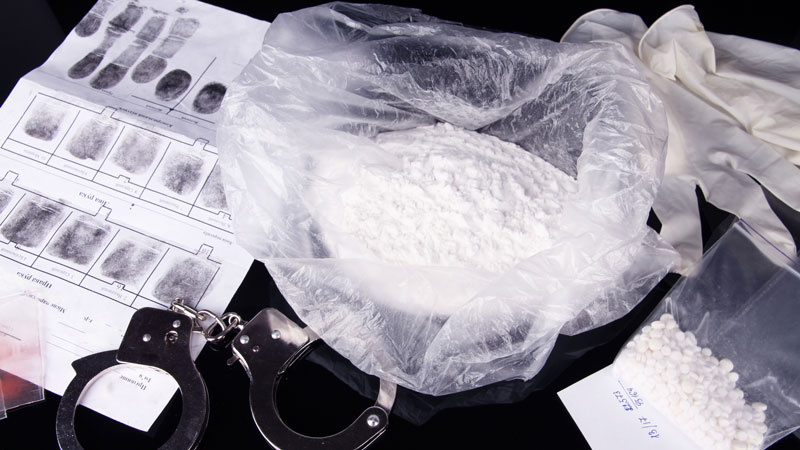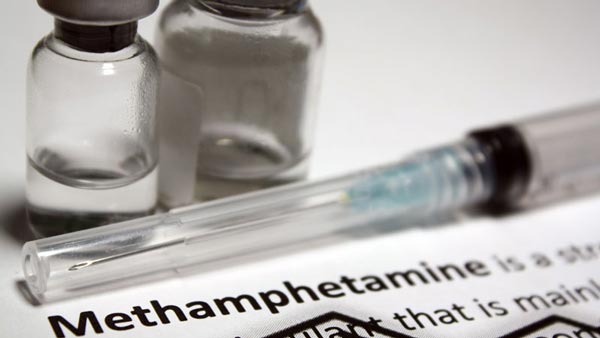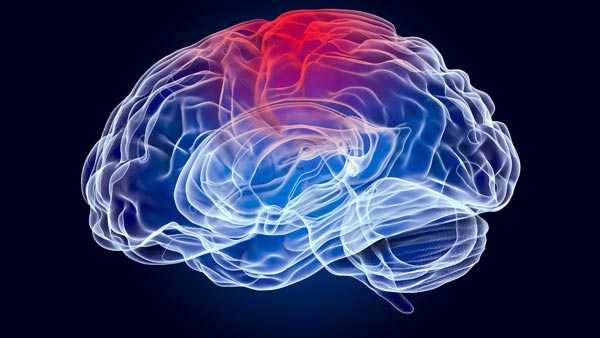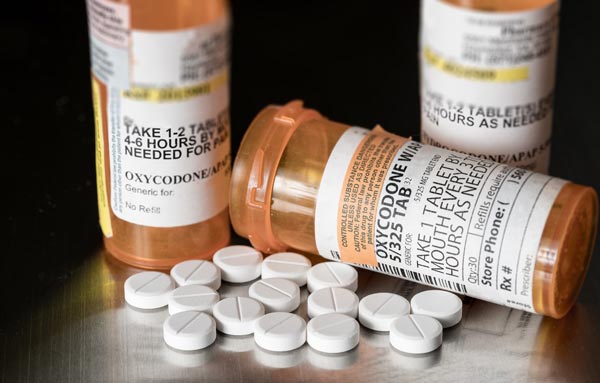Table of Contents
Key Points
- Meth, or methamphetamine, is a powerful stimulant.
- Its brand name is Desoxyn® which is sometimes used to treat symptoms of severe ADHD.
- Illegal meth is often injected or smoked, both of which can lead to fatal overdoses.
- There is help for those addicted to using methamphetamine.
What Are Meth Addiction Symptoms?
Because meth is a stimulant, the most common meth addiction symptoms are increased energy, talkativeness, giddiness, and a fast heart rate. Some people may also experience mood changes, paranoia, anxiety, and dry mouth. Addiction symptoms may change and worsen the longer a person abuses this drug.
First: What Is Meth and How Does It Work?
Around 2.5 million people in the United States used meth in 2021.[1] Meth is a Schedule II drug, according to the Controlled Substances Act, meaning that it has medical uses but also a high risk of abuse and addiction. The primary medical form of meth is Desoxyn®, which is an ADHD medication.
ADHD is characterized by being unable to focus. It may seem counterintuitive to give someone with a lack of attention a stimulant, but both meth and amphetamines balance the brain chemistry in a person with ADHD. This allows them to be more alert and focused. Taking Desoxyn® when you don’t have ADHD will make you nervous, energetic, and unfocused.
Using methamphetamine can also create a sense of euphoria, especially when misused, and can alter the way the brain makes certain hormones, such as serotonin and dopamine. Once the brain starts relying on the medication to do all the heavy lifting, it will be difficult for the brain to function normally when it’s time to stop using the medication.
Besides meth in the form of Desoxyn®, many people also use illegal meth. Illegal meth is an especially dangerous product because it is mixed with various unknown and potentially dangerous fillers. Fillers are added to make the meth a much cheaper product. Common fillers include talcum powder, cat litter, rat poison, and industrial cleaning products. Some of the fillers are so dangerous that people die immediately after consumption.
Meth Addiction Symptoms: What to Look For
Meth is addictive because it makes people feel good. The euphoria that it causes makes people want to keep taking the drug. Some will take it in increasingly larger amounts to keep experiencing the same intense high. The dysphoria that follows is also a contributing factor to addiction.
Increased Methamphetamine Use
Increased methamphetamine use is a common sign of meth addiction, and applies to those who take in prescription form and illicitly. Those with a Desoxyn® prescription might misuse the medication to achieve a more intense high, such as by crushing up the pills and snorting them. Others may dissolve the pills in a solution before injecting them for an immediate effect.
Those who use methamphetamine illegally may take more of the drug and more often as the body builds a tolerance to the substance.
Physical Symptoms
Individuals addicted to methamphetamine may exhibit increased energy levels and alertness, accompanied by weight loss and a decreased appetite.
Dilated pupils, excessive sweating, and a rapid or irregular heartbeat are common physical signs. Restlessness and repetitive movements, such as teeth grinding or picking at the skin, may also be present.
Meth use can lead to dry mouth and excessive thirst, along with the development of skin sores or infections due to the compulsion to scratch or pick. Long-term methamphetamine abuse can cause dental problems, commonly referred to as “meth mouth,” which include severe tooth decay and gum disease.
Injection of meth can also result in track marks or needle marks on the skin.
Secretive Behavior
A person addicted to meth might be more secretive than usual. Those with a Desoxyn® prescription may try to get multiple prescriptions from different doctors so they can have a stockpile of the drug. Those who obtain the substance from the streets may become reclusive, hide money, steal to support their addiction, and withdraw from friends and family to hide their drug use.
Meth Cravings and Withdrawal Symptoms

A person using meth may start experiencing cravings if they have gone some time without using the drug. Cravings are very intense and can make a person moody or violent. It is hard to focus on anything else except the drug when a person is having cravings. A full-blown addiction is characterized by withdrawal symptoms.
Taking more meth will make the person feel better again, but only temporarily. A crash will soon follow, and the cycle of addiction will continue.
The Dangers of Meth Use
Meth is an extremely dangerous drug because it negatively affects the brain and body in various ways. Meth is a central nervous system stimulant.[2] The central nervous system is made up of the brain and spinal cord. Using a stimulant on this part of the nervous system will make it work faster, which is why those who use meth can often talk and think faster than usual.
After stimulating the brain like this for an extended time, the drug will start wreaking havoc. It will physically change certain structures in the brain, some of which will shrink and become less functional.[3] This can lead to cognitive decline, a lower IQ, early onset dementia, and mood disorders. Some may experience psychotic symptoms, such as hallucinations or delusions that may not go away even after a person stops using meth.
Meth can also cause long-term depression and anxiety. The physical long-term effects of meth primarily include organ damage. Because stimulants increase the heart rate, long-term use can lead to heart damage, heart attacks, strokes, and heart disease. The liver and kidneys will suffer and may develop diseases of their own. In more severe situations, organ failure can result.
Methamphetamine Addiction and the Risk of Overdose
Overdose is one of the most serious consequences of long-term use. The more a person uses meth, the higher the dose they will need to get the same euphoric effect. This is known as building a tolerance. As a person takes increasingly higher doses, they increase their risk of taking too much and overdosing.
Overdosing on meth can result in a heart attack, which may kill them or leave them with permanent heart damage. It is also possible to stop breathing due to respiratory depression. If a person is without oxygen for long enough, they will suffer brain damage or die.
If an overdosed person gets medical attention in time, they may survive with minor damage to their body.
Frequently Asked Questions About Meth Addiction Symptoms
Below are some of the most frequently asked questions regarding methamphetamine.
The Heights Treatment Editorial Guidelines
There is a vast amount of misinformation online especially as it relates to health & wellness. We have made it our mission at The Heights Treatment to provide accurate, medically sound content that has been medically reviewed by a doctorate level clinician so that you can trust the information contained within our website.





